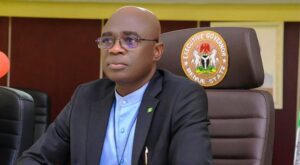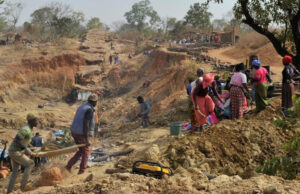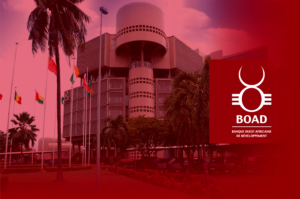Benue State’s Gold and Aluminium Discovery Sparks Hope: Questions Governance, Growth and the People’s Future

Benue State’s confirmation of gold and aluminium deposits has stirred excitement and debate across the state, as government officials pledge to regulate mining and court credible global investors. The discovery, if well managed, could mark a turning point for Benue State that is long known as Nigeria’s Food-Basket, reshaping its economic, social and political landscape.
Announcing the development, state officials said confirmed reports indicate gold deposits in Kwande Local Government Area and aluminium along the riverine belts of the state. “These discoveries are positive indicators of Benue’s growing mineral potential. But many ongoing mining activities remain inorganised or illegal, and that must change” – said Mr. Anselm Nege, Director of Solid Minerals, in Benue state.

![]()
At the heart of this new phase is the Hyacinth Alia administration, which in 2023 established a task force on illegal mining. Following its report, the government imposed a statewide ban on mining operations, citing insecurity and the need for regulation. Officials say this directive was aimed at curbing lawlessness and protecting local communities. Further than the mineral wealth lies an indepth story about people, opportunity and responsibility, intertwined in economic and business implications.
Experts say the new discoveries could transform Benue from an agriculturally dependent economy into a diversified growth hub. “If handled properly, this can attract investors, build industries, and create jobs,” said Andrew Simon Mbaiorga, Chief Risk Officer of the Benue Investment and Property Company (BIPC). “It’s a chance to turn natural resources into sustainable livelihoods.”
In respect to many of the local entrepreneurs, the potential influx of mining and processing industries could spur new businesses, from logistics to equipment leasing. Yet, there’s also concern about regulatory enforcement, given Nigeria’s history of poorly managed resource booms.

Communities in Kwande and the riverine areas stand at the frontline of change. While residents anticipate jobs and infrastructure, others fear displacement, environmental damage, and the erosion of local traditions tied to the land. Families who rely on farming worry that unregulated mining could pollute rivers and degrade farmlands. “We want development, but not at the cost of our homes and heritage,” said a local youth leader in Kwande.
Benue’s cultural identity is rooted in farming, riverine fishing and communal life. This cultural existence may face new pressures as global investors start arriving at Kwande. Cultural advocates have urged the government to protect ancestral lands and community rights while integrating traditional leaders into the decision-making process.
Environmentalists warn that gold and aluminium mining, if done without modern safeguards, could lead to water contamination and deforestation. Issues already plaguing parts of central Nigeria.
![]()
The discovery will politically tests Governor Alia’s promise of transparency and reform. The state’s new regulatory board for mining operations is seen as a key test of whether the government can attract investors without enabling corruption or local conflict.
Observers say the Alia administration’s success will depend on balancing investor confidence with community participation. This is a mineral story as much as it is a governance story. If Benue gets it right, it could become a model for responsible resource development in Nigeria.
Benue’s mineral discovery presents both a golden opportunity and a formidable challenge. It could lift thousands out of poverty, strengthen state revenue, and redefine the future of local communities. But it also requires careful management, blending modern business practices with cultural sensitivity and environmental caution.
As the government moves to end illegal mining and court global investors, the question that will hold the mind would be – Can Benue turn its new-found wealth into shared prosperity without losing the soul of its land and people?






